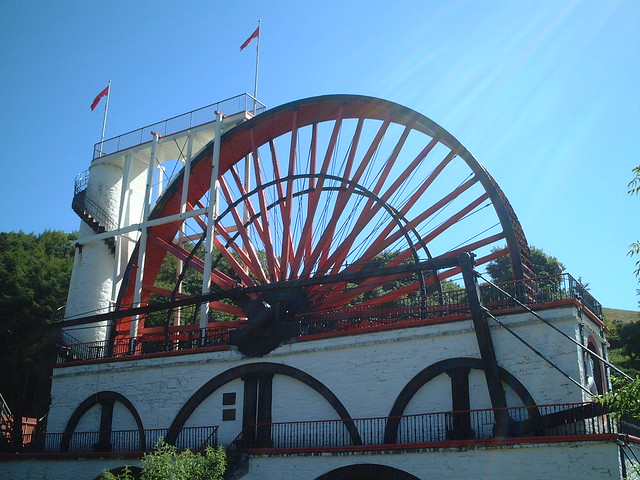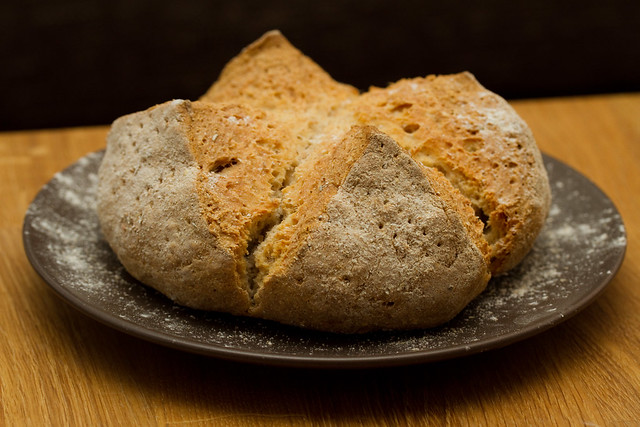Words for rope, cord, string and related things in Celtic languages.
Words marked with a * are reconstructions.
| Proto-Celtic | *tantus, *tantā = cord, string |
|---|---|
| Old Irish (Goídelc) | tét [tʲeːd] = cord, rope, string |
| Middle Irish (Gaoidhealg) | tét, téd, tet [tʲeːd] = rope, cord, string, a spider’s thread tétaire = harper, lute-player tétán = rope, cord téitimnech = the crack, creaking of the ropes |
| Irish (Gaeilge) | téad [tʲiad̪ˠ/tʲeːd̪ˠ] = rope, cable, string, chord, tether téadach = stringed téadaire = roper, corder, player of stringed instrument téadaireacht = (act of) playing on stringed instrument téadán = short rope, string, cord, line téadchleasaí = rope-walker, rope-dancer téadleimneach = (act of) skipping téadra = cordage |
| Scottish Gaelic (Gàidhlig) | teud [tʲiad] = cord, string teudach [tʲiadəx] = stringed teudachadh [tʲiədəxəɣ] = (act of) stringing, tethering teudag [tʲiədag] = little string/cord, fibre teudagach [tʲiədagəx] = fibrous, fibery, abounding in fibres teudaichte [tʲiadɪçdʲə] = stringed, tethered |
| Manx (Gaelg) | tead, tedd, teidd = rope, string, line, guy teaddey = rope teaddaght = cordage |
| Proto-Brythonic | *tant = string (?) |
| Old Welsh (Kembraec) | tantou = string |
| Middle Welsh (Kymraec) | tant = string, line, cord, tendril tennyn = tether, leash, lead, halter, string, cord, rope, noose, snare |
| Welsh (Cymraeg) | tant [tant] = string (of a musical instrument), line, cord, tendril, bowstring, nerve, sinew, tendon tantio = to string (a musical instrument) tantiwr = fisherman who stands on the shore holding one end of a salmon net, while two others throw the net into the water from a boat tantor = player of stringed instruments, harpist tennyn = tether, leash, lead, halter, string, cord, rope, noose, snare |
| Old Breton (Brethonoc) | tantou = strings |
| Middle Breton (Brezonec) | tant = string |
| Breton (Brezhoneg) | tant [tãnt] = string |
Etymology: from Proto-Indo-European *tén-tu-s/ *tn̥-téw-s, from *ten- (to stretch, extend) [source]. Words from the same PIE roots include: ndej (to stretch) in Albanian, tenet (an opinion, belief, principle) in English, dehnen (to stretch) in German, tenere (to hold, keep, sustain) in Italian, tit (to wind, reel, coil, wrap) in Latvian, tener (to have, possess, hold, grasp) in Spanish, and tänja (to stretch, bend) in Swedish [source].
| Proto-Celtic | *lomanā = rope, thong |
|---|---|
| Old Irish (Gaídelc) | loman = cord, rope |
| Middle Irish (Gaoidhealg) | loman, lomna = cord, rope, thong, string, leash, bridle, halter |
| Irish (Gaeilge) | lomhain = rope, halter, leash |
| Scottish Gaelic (Gàidhlig) | lomhainn [l̪ˠõ.ɪn̪ʲ] = leash, lead, pack, band, gang |
| Manx (Gaelg) | louyn = rope er louyn = along, by hand, on a rope |
| Proto-Brythonic | *lloβ̃an [be̝ˈrɨːd] = rope, string |
| Middle Welsh (Kymraec) | llyfan = string, cord, thin rope |
| Welsh (Cymraeg) | llyfan = string, cord, thin rope |
| Middle Cornish (Cernewec) | lovan = rope, cord, string lovannan = a small rope, cord |
| Cornish (Kernewek) | lovan = rope, lasso lovan dynn/dydn = tightrope lovan lemmel = skipping rope |
| Middle Breton | louffan = strap, belt |
| Breton (Brezhoneg) | louan [ˈluːãn] = strap, belt louaneg = slender (long-legged), clumsy louangen = skinny, without energy |
Etymology: unknown, possibly from a non-Indo-European substrate language [source].
| Proto-Celtic | *souggo = (?) |
|---|---|
| Middle Irish (Gaoidhealg) | súagán, súgán = (straw) rope |
| Irish (Gaeilge) | súgán = (straw) rope, strawmat, lifeless, inert, spinless person súgánach = confused |
| Scottish Gaelic (Gàidhlig) | sùgan [suːgan] = straw rope, horse’s collar (filled with straw) |
| Manx (Gaelg) | suggane = twisted straw rope |
Etymology: from Proto-Indo-European *sew- (to bend, cut). The Scots word suggan (light saddle, bedroll), and the Hiberno-English word sugan (a wooden chair with a seat made from woven straw or twine stretched over the frame) both come from the same roots via Irish, as does the word soogan (a bedroll) in American English [source].
| Old Irish (Goídelc) | súainem = cord, rope, string, thong |
|---|---|
| Middle Irish (Gaoidhealg) | súainem, súaineamh, súainimh = cord, rope, string, thong, course (of river) |
| Irish (Gaeilge) | suaineamh = (javelin) cord, amentum (catkin) (literary) |
| Scottish Gaelic (Gàidhlig) | sìoman [ʃiəman] = simmen, rope made from plant fibres (esp. straw, but also coir, heather, grass, twigs or rushes) |
| Manx (Gaelg) | saineen = cord, thong |
Etymology: from Old Norse síma (cord, rope) [source], from Proto-Germanic *sīmô (rope, cord), from Proto-Indo-European *sh₂éy-mn̥/*sh₂i-mén-s, from *sh₂ey- (to bind, fetter) [source].
| Middle Irish (Gaoidhealg) | róp = rope |
|---|---|
| Irish (Gaeilge) | rópa [ˈɾˠoːpˠə]= rope rópa = rope rópadóir = rope-maker rópadóireacht = rope-making, rope-walking, rope-climbing, working with ropes |
| Scottish Gaelic (Gàidhlig) | ròp, ròpa [r̪ˠɔːhbə] = rope, bundle of seaweed ròpach [r̪ˠɔːhbəx] = abounding in ropes, tangled up, jumbled, untidy, messed up, abounding in tall tales/yarns ròpadh [r̪ˠɔːhbəɣ] = (act of)roping, fastening with a rope, entangling ròpair [r̪ˠɔːhbɛrʲ] = auctioneer ròpaireachd [̪rˠɔːbɛrʲəxg] = exaggerated tale, exaggerating, adorning the truth |
| Middle Welsh (Kymraec) | raff, raf = rope, cord, string, line, cable, noose, halter reffyn, rheffyn = (small) rope, cord, string, (fishing) line, cable, noose, halter |
| Welsh (Cymraeg) | rhaff = rope, cord, string, line, cable, noose, halter rhaffu, rhaff(i)o = to tie with a rope or cord, to rope, fix a rop on, make a rope, to string or join (words, etc), connect together, link, crumple, spoil, waste, eat eagerly, gobble, snatch rhaff(i)aid = rope(ful), that which is held by a rope rhaffol = roped, made of rope(s), funicular rhaffwr, rhaffydd = rope-maker rheffyn = (small) rope, cord, string, (fishing) line, cable, noose, halter |
Etymology: from Middle English rop(e) (rope), from Old English rāp (rope, cord, cable), from Proto-West-Germanic *raip (string, band), from Proto-Germanic *raipaz (rope, cord, band, ringlet), possibly from Proto-Indo-European *h₁royp-nó-s (band, strip, strap) [source]. The Welsh words are probably cognate, but their origins are not certain.
| Middle Irish (Gaoidhealg) | corda = cord, rope |
|---|---|
| Irish (Gaeilge) | corda = cord, string, chord cordach = chordate, corded cordaigh = to cord |
| Scottish Gaelic (Gàidhlig) | còrd = cord, chord |
| Manx (Gaelg) | coard, coyrd, coyrdey = cord |
| Middle Welsh (Kymraec) | kord = cord, string, small rope, halter cort = cord, string, twine, rope |
| Welsh (Cymraeg) | cord = cord, string, small rope, halter cort = cord, string, twine, rope cortio = to cord, fasten with cords or strings, twist |
| Middle Cornish (Cernewec) | cord = cord corden = string |
| Cornish (Kernewek) | korden = cord, string korden an keyn = spinal cord |
| Middle Breton (Brezonec) | corden, cordenn, querdenn, querdeynn = rope cordenner = tailpiece |
| Breton (Brezhoneg) | kordenn [ˈkɔr.dɛn] = rope kordennan = to rope, fish with longlines kordenner = tailpiece kordennerezh = ropework kordennig = cord, string |
Etymology (Breton): from Middle French corde (rope), from Old French corde (rope), from Latin chorda (tripe, intestine, catgut, string, rope, cord), from Ancient Greek χορδή (khordḗ, string of gut, chord, sausage, black pudding), from Proto-Indo-European *ǵʰerH- (bowel) [source].
Etymology (other languages): from Middle English corde (cord, string, sinew), from Old French corde (rope), from Latin chorda (tripe, intestine, catgut, string, rope, cord), from Ancient Greek χορδή (khordḗ, string of gut, chord, sausage, black pudding), from Proto-Indo-European *ǵʰerH- (bowel)[source].
Words from the same roots include cord, chord, hernia and yarn in English, corda (rope, chord, string) in Italian, and koord (rope, cord) in Dutch [source].
Sources: Wiktionary, Etymological Dictionary Of Proto Celtic, In Dúil Bélrai English – Old Irish glossary, eDIL – Electronic Dictionary of the Irish Language, Teanglann.ie, Am Faclair Beag, An etymological dictionary of the Gaelic language, Fockleyreen: Manx – English Dictionary, Online Manx Dictionary, Gaelg Corpus, Geiriadur Prifysgol Cymru, Lexicon cornu-britannicum : a dictionary of the ancient Celtic language of Cornwall, Gerlyver Kernewek, Devri : Le dictionaire diachronique du breton, Dictionnaires bilingues de Francis Favereau / Edition Skol Vreizh, TermOfis








